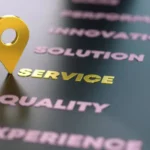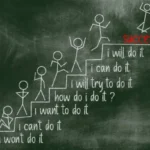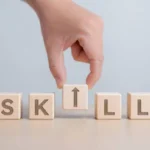IntroductionWhy Learn Programming?
Ever wondered how your favorite apps or websites are made? It all starts with code. Programming is the engine that powers our digital world—from social media platforms to your smart fridge. Whether you’re dreaming of a tech career or just want to build your own website, learning to code is a superpower in today’s world.
Beginner Struggles
Let’s be honest: starting out can be intimidating. There’s a jungle of languages, tools, and tutorials. But here’s the good news—you don’t need to learn everything at once. The key is starting with the basics and building up.
1. HTML & CSS: The Web’s Building Blocks
What is HTML?
HTML stands for HyperText Markup Language. Sounds fancy, but it’s just the stuff that tells your browser how to display content. Think of it like the skeleton of a website.
Want to put headings, paragraphs, images, or videos on a page? You’ll need HTML.
Styling with CSS
CSS (Cascading Style Sheets) is what makes websites look good. Fonts, colors, layouts, animations—it’s all handled by CSS. If HTML is the bones, CSS is the skin, clothes, and personality.
2. Python: Simplicity with Power
Why Python is Great for Starters
Python is often called the “beginner’s language,” and for good reason. It’s clean, readable, and forgiving. Want to print “Hello World”? Just type:
pythonCopyEditprint("Hello, World!")
That’s it!
Real-World Use Cases
Python powers Instagram, Spotify, even parts of Google. You can use it for web development, automation, data analysis, AI—you name it. If you’re not sure where to start, Python is a safe bet.
3. JavaScript: Making Webpages Come Alive
The Basics of JavaScript
While HTML and CSS structure and style your site, JavaScript brings it to life. Want buttons that do stuff? Animations? Forms that react to user input? That’s all JavaScript.
Why JS is a Must-Have Skill
JavaScript runs in every browser. That means once you learn JS, you can build interactive websites without needing to install anything. It’s also the backbone of popular frameworks like React and Node.js.
4. SQL: Speak the Language of Data
What is SQL?
SQL (Structured Query Language) is how we talk to databases. It helps you store, retrieve, and manage data. Want to build an app that stores user profiles, products, or messages? You’ll need SQL.
Databases Made Simple
The basics of SQL are pretty approachable:
sqlCopyEditSELECT * FROM users;
That line grabs all the users in your database. Pretty cool, right?
5. Git & GitHub: Collaborate Like a Pro
What is Version Control?
Imagine writing a long essay without the ability to undo changes. Scary, huh? That’s why programmers use version control systems like Git. They let you track changes, go back to previous versions, and experiment safely.
GitHub for Beginners
GitHub is like Facebook for code. It’s where developers store and share projects. It also helps you collaborate with others. Employers love seeing your GitHub—it’s like your coding portfolio.
Choosing the Right Language to Start
Based on Your Goals
Want to build a website? Start with HTML, CSS, and JavaScript. Dreaming of becoming a data scientist? Python and SQL are your buddies.
Based on Project Type
If you’re more into apps, go for JavaScript frameworks or even mobile languages like Kotlin or Swift later on. The best language is the one that gets you closer to your goal.
Common Mistakes Beginners Make
Learning Too Much Too Fast
Trying to learn five languages at once? Slow down, superhero. Focus on one language and one small project at a time.
Ignoring Fundamentals
It’s tempting to jump into fancy frameworks, but you need a solid foundation first. Learn how loops, functions, and variables work.
Tools That Make Learning Easier
Code Editors
Start with user-friendly editors like Visual Studio Code or Sublime Text. They offer auto-complete, debugging, and themes to make coding easier and more fun.
Online Platforms & Communities
Websites like freeCodeCamp, Codecademy, and W3Schools are goldmines for beginners.
How Long Does It Take to Learn?
Time Commitment
Learning programming is a marathon, not a sprint. If you spend just an hour a day, you could build real skills in 3–6 months.
Learning Path Strategies
Follow structured paths. For example: HTML → CSS → JavaScript → Git → Build a project. Small wins keep you moving forward.
Free Resources to Start Learning
Websites for Beginners
YouTube Channels to Follow
Best Practices When Starting Out
Write Code Daily
Even 30 minutes a day adds up. Consistency beats cramming.
Learn by Building Projects
Reading is great, but nothing beats building. Start with a portfolio site, a to-do list app, or a personal blog.
Should You Learn Multiple Languages at Once?
Pros and Cons
Pros? You become flexible and versatile. Cons? You might confuse syntax and burn out. It’s best to master one before jumping to another.
What Experts Recommend
Most pros suggest starting with Python or JavaScript and sticking with it for at least 3–6 months.
How to Stay Motivated While Learning
Set Goals
“Build a website in 30 days” sounds more exciting than “Learn HTML.” Clear goals keep you focused.
Join Communities
Whether it’s Reddit, Discord, or Stack Overflow, being part of a coding tribe helps you stay on track.
Conclusion & Next Steps
So there you have it—the top 5 programming skills every beginner should know: HTML, CSS, Python, JavaScript, SQL, and Git. Start small. Build stuff. Break stuff. Fix it. Repeat.
Coding is a journey, not a destination. You’ll be amazed at how far you can go in just a few months.
FAQs
1. What’s the easiest programming language to start with?
Most beginners start with Python because of its simplicity and versatility.
2. Can I get a job by just knowing HTML, CSS, and JavaScript?
Yes, especially entry-level front-end developer roles. Add some frameworks like React, and you’re job-ready.
3. How do I practice coding every day?
Use platforms like HackerRank, LeetCode, or even build small projects on your own.
4. Is GitHub necessary for beginners?
Absolutely! It’s a place to store your code, track progress, and show off your work to potential employers.
5. How long should I spend learning before I apply for jobs?
If you’re consistent for 3–6 months and build a solid portfolio, you can start applying for internships or junior roles.





